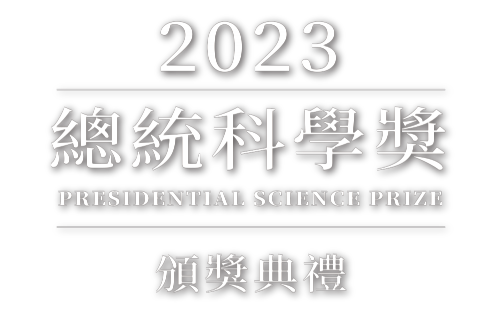2023 AWARDS
2023 AwardeesAcademician Wing-Huen Ip
Mathematics and Physical Sciences Category ─ Wing-Huen Ip
Pioneering a New Era in Taiwanese Planetary Research
Over 60 Top-Notch Papers Published, Remarkable International Academic Reputation
Academician Wing-Huen Ip has dedicated himself to the fields of cometary physics, planetary dynamics, and the interaction between satellites and magnetospheres. His contributions have been exceptionally prolific, with a cumulative publication of over 500 journal papers, including more than 60 published in top international journals such as "Nature" and "Science." His foundational research on the interaction between cometary atmospheres and solar winds holds indispensable value in understanding the formation of the solar system and the origin of planets. He is also one of the three main proposers of the collaborative "Cassini-Huygens Mission" between the European Space Agency (ESA) and National Aeronautics and Space Administration (NASA).He introduced atmospheric models of Saturn's rings and the role of charged particles in magnetospheric dynamics, leading the research team at National Central University to discover abundant water vapor in Saturn's satellites' plumes. These pioneering contributions have furthered our understanding of the Saturnian system, exploration of extraterrestrial habitable environments, and the origins of life.
Academician Ip was born in Nanjing in 1947. His family came to Taiwan for a short time before moving to Portuguese Macau. His years of study at the Sheng Kung Hui Choi Kou School Macau and New Asia College of the Chinese University of Hong Kong inspired his curiosity and passion for knowledge. Subsequently, he pursued further studies in the United States, earning a Master's degree in Physics from the University of Pittsburgh in 1970 and a Ph.D. in Applied Physics and Information Science from the University of California, San Diego in 1974, where he continued his postdoctoral research. In 1978, the Max Planck Institute for Aeronomy (renamed "Max Planck Institute for Solar System Research" in 2004) in Germany appointed Academician Ip as a researcher, where he served for 20 years.
Between 1991 and 1992, he accepted an invitation from the National Science and Technology Council of Taiwan to serve as the Chief Scientist of the National Space Laboratory Provisional Office of the Executive Yuan (renamed "National Space Organization" in 2005). He played a vital role in defining the mission of Taiwan's first scientific satellite, and the design and selection of scientific payloads, laying a solid foundation for Taiwan's space technology development. In 1998, he decided to settle in Taiwan and accepted an invitation from National Central University to serve as the Dean of the College of Science. During his six-year tenure, he effectively utilized his interdisciplinary expertise and planning skills to establish the Institute of Cognitive Neuroscience, Institute of Biophysics, and Institute of Bioinformatics. He also founded the Solar System Laboratory within the Institute of Astronomy, ushering in a new era of planetary science research in Taiwan.
Academician Ip played a key role in establishing the Lulin Observatory at National Central University, transforming it into a nationallevel facility and advancing research in the field of time-domain astronomy. Lulin Observatory became a prominent platform for international collaborations and a highlight of solar system research. The domestic team he led successfully participated in a number of international space missions, including the Cassini Saturn mission jointly conducted by ESA and NASA, ESA's Rosetta comet mission, Mars Express, and the BepiColombo Mercury mission jointly conducted by the Japan Aerospace Exploration Agency (JAXA) and ESA. In 2020, he founded the Taiwan Space Union (TSU) and served as its chairman, promoting close collaboration between academia, industry, and government to further integrate Taiwan's expertise in space technology. He also raised funds from industry partners and collaborated with the Delta Electronics Foundation to establish the "Young Astronomer Lecture Series," aiming to attract outstanding young scholars from abroad to promote astronomy education in Taiwan. Academician Ip is dedicated to nurturing scientific talent, successfully mentoring numerous high-caliber educators and contributing to K-12 science education by identifying and cultivating exceptional individuals.
His academic influence is profound. Having initiated and organized the Asia Oceania Geosciences Society (AOGS) on behalf of Taiwan, he served as the Chairman of the Organizing Committee in 2002 and as the inaugural President. Today, the organization boasts over 11,000 members from more than 54 countries and is on par with the American Geophysical Union (AGU) and the European Geosciences Union (EGU), making remarkable contributions to elevating the academic status of the Asia-Pacific region.
As an internationally acclaimed scholar, Academician Ip has received numerous awards. His contributions to the Cassini mission earned him the NASA Public Service Medal. He was awarded the Axford Medal by the Asia Oceania Geosciences Society and had an asteroid, 18730 Wingip, named in his honor in recognition of his contributions to the field of astronomy. In 2016, Ip was selected by Academia Sinica to receive the title of Academician during the 31st award ceremony. In 2020, he received the Gerard P. Kuiper Prize from the Planetary Science Division of the American Astronomical Society, a lifetime achievement award recognizing outstanding contributions to planetary science.









